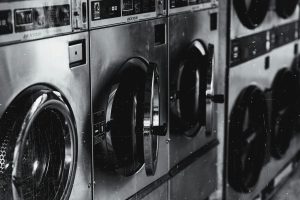When to Repair vs. Replace Your Aging Appliances
As a homeowner, the thought of your appliances starting to show signs of age can be a worrisome one. Is it time to repair or replace? It’s a question that many homeowners face at some point, and the answer isn’t always clear. While replacing an aging appliance may seem like the more practical choice, there are times when a simple repair can save you both time and money. In this article, we’ll explore the pros and cons of repair vs. replacement for your aging appliances.
When to Repair Your Aging Appliances
1. When the problem is minor
It’s common for appliances to require repairs every now and then, especially if they’re nearing the end of their lifespan. However, not all issues are serious enough to warrant a replacement. For instance, a malfunctioning thermostat or a clogged filter can be fixed easily and inexpensively. In such cases, it’s more cost-effective to repair your appliance rather than replace it.
2. When the appliance is still under warranty
If your appliance is still under warranty, it’s a no-brainer to opt for a repair over a replacement. Warranties typically cover parts and labor costs, so you won’t have to pay out of pocket for the repair. Keep in mind that most warranties have an expiry date, so be sure to check your appliance manual to see if it’s still covered.
3. When replacement parts are readily available
Some older appliances can be difficult and expensive to replace. If you’re dealing with a hard-to-find or obsolete part, it may be more cost-effective to repair your appliance. Also, consider the time it takes to order and install a new part versus just repairing the existing one. If the repair can be done quickly, it may not make sense to wait for a replacement.
When to Replace Your Aging Appliances
1. When repair costs exceed replacement costs
One of the biggest deciding factors when it comes to repair vs. replace is the cost. If the cost of repairing your appliance is close to or exceeds the cost of buying a new one, it’s usually wiser to opt for a replacement. This will save you from having to deal with future repairs and help you avoid the frustration of constantly fixing an aging appliance.
2. When the appliance is more than 10 years old
As a general rule, appliances that are over 10 years old are nearing the end of their lifespan. Even if your appliance is still functioning, it may be worth considering a replacement as you’ll likely start to see more frequent repairs and higher energy bills. Plus, newer appliances are more energy-efficient and come with advanced features that can save you money in the long run.
3. When the appliance is causing safety concerns
If your appliance is posing a safety risk, it’s imperative to replace it immediately. For example, if you notice exposed wires or a gas leak, do not attempt to repair your appliance. Your safety and the safety of your family should always come first.
Conclusion
In conclusion, the decision to repair or replace your aging appliances should be based on a variety of factors. Consider the age of the appliance, the cost of repair vs. replacement, and any potential safety concerns. It’s also worth consulting a professional to get an expert opinion. Remember, if the cost of repair is more than half of the cost of replacement, it may be wiser to opt for a new appliance. Always weigh your options carefully before making a decision.
By following these guidelines, you can make an informed decision when your appliances start to show signs of aging. Whether you choose to repair or replace, remember that regular maintenance can extend the lifespan of your appliances and save you money in the long run. Don’t hesitate to consult a professional if you’re unsure about the best course of action for your specific appliance.











